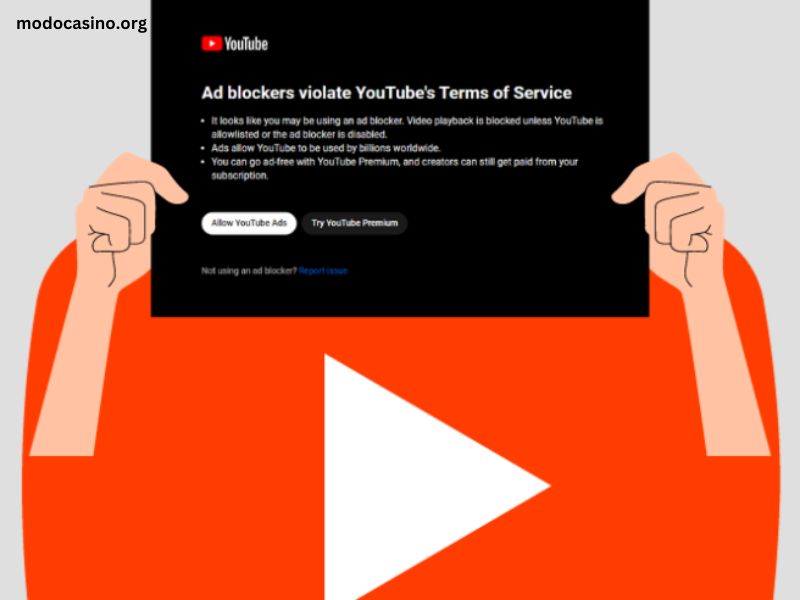In the ever-evolving landscape of digital content consumption, ad blockers have become a common tool for internet users seeking to enhance their browsing experience. By filtering out intrusive advertisements, these extensions promise a cleaner, more enjoyable viewing environment. However, this practice has sparked significant controversy, particularly when it comes to platforms like YouTube. YouTube, one of the world’s largest video-sharing platforms, has clear policies regarding ad-blocking technology. This article delves into how ad blockers can potentially violate YouTube’s Terms of Service and the implications for users and content creators alike.
The Role of Ad Blockers
Ad blockers are browser extensions or software designed to prevent advertisements from displaying on websites. Users install them to avoid pop-ups, banner ads, video pre-rolls, and other forms of online advertising. The primary appeal of ad blockers lies in their ability to improve page load times, enhance privacy by preventing tracking, and reduce visual clutter.
For many users, ad blockers are seen as a way to take control of their online experience. However, their widespread use has raised concerns among content creators and platform operators, particularly on sites like YouTube, where advertising revenue is a crucial income stream.
YouTube’s Terms of Service: A Brief Overview
YouTube’s Terms of Service (ToS) are designed to govern user behavior and ensure a fair, functional, and respectful environment on the platform. Key aspects of the ToS include:
- Content and Community Guidelines: These rules govern what users can upload, share, and interact with on the platform. They aim to prevent the distribution of harmful, illegal, or inappropriate content.
- Monetization Policies: YouTube’s monetization policies outline how content creators can earn revenue through ads, channel memberships, Super Chats, and other features. This is critical for many creators who rely on these earnings for their livelihoods.
- Advertising Policies: YouTube’s advertising policies include guidelines for how ads are displayed and how users interact with them. They also stipulate that users should not interfere with YouTube’s ad delivery systems.
The Intersection of Ad Blockers and YouTube’s ToS
Ad blockers are controversial because they directly impact YouTube’s advertising ecosystem. Here’s how their use can conflict with YouTube’s Terms of Service:
- Interference with Ad Revenue: YouTube’s ToS explicitly state that users must not interfere with the platform’s advertising systems. By blocking ads, users undermine YouTube’s ability to generate revenue through advertisements. This interference is considered a breach of the terms governing platform use.
- Monetization Impact on Creators: YouTube’s ad revenue system is vital for content creators who monetize their videos. When users block ads, creators lose potential earnings, as advertisers are not able to reach their target audience. This has a ripple effect, diminishing the financial support available to creators and potentially affecting the quality and quantity of content produced.
- User Agreement and Consent: When users sign up for a YouTube account, they agree to the platform’s ToS, which include accepting advertisements as a part of the service. By using ad blockers, users are essentially opting out of this agreement, which may be seen as a breach of the contractual terms.
The Legal and Ethical Dimensions
The legal implications of using ad blockers in relation to YouTube’s ToS involve a complex interplay of copyright law, contract law, and digital rights. While ad blockers are legal tools, their use in ways that disrupt contractual agreements or financial systems can be legally contentious.
Legal Aspects: YouTube’s ToS constitute a contract between the platform and its users. Breaching this contract by using ad blockers can theoretically lead to legal consequences, including account suspension or termination. However, actual legal actions against individual users for ad blocking are rare and usually involve more significant breaches of terms.
Ethical Considerations: Ethically, the use of ad blockers raises questions about fairness. On one hand, users have the right to a less intrusive online experience. On the other, content creators and platforms rely on advertising revenue to fund their operations. The ethical dilemma lies in balancing user experience with the economic sustainability of content creation.
YouTube’s Response and Mitigation Strategies
YouTube has taken various measures to address the impact of ad blockers on its ecosystem:
- Ad Blocker Detection: YouTube employs technologies to detect the use of ad blockers. When such tools are identified, users may be presented with messages requesting them to disable their ad blockers to continue using the service.
- Alternative Revenue Models: To mitigate the impact of ad blockers, YouTube has explored alternative revenue models, such as YouTube Premium. This subscription-based service provides an ad-free experience while supporting creators through a different revenue stream.
- Content Creator Support: YouTube has implemented various features to support creators who are affected by changes in ad revenue. This includes diversifying monetization options, such as channel memberships and Super Chats, which are less impacted by ad blockers.
The Future of Ad Blocking and Online Advertising
As ad blockers and online advertising continue to evolve, several trends are shaping the future of this dynamic:
- Enhanced Ad Blocker Technology: Ad blockers are becoming more sophisticated, with advanced algorithms to detect and filter various forms of advertisements. This ongoing development challenges platforms like YouTube to find new ways to monetize content effectively.
- User Preferences and Privacy: Increasing concerns about privacy and data security are driving the adoption of ad blockers. Platforms like YouTube will need to balance user privacy with effective monetization strategies, potentially leading to more transparent and user-friendly advertising practices.
- Regulatory Developments: Governments and regulatory bodies are exploring frameworks to address the complexities of digital advertising and user consent. Future regulations could influence how ad blockers are used and how platforms like YouTube adapt their policies.
Conclusion
Ad blockers present a significant challenge to platforms like YouTube, impacting the delicate balance between user experience and revenue generation. While ad blockers offer users a way to avoid intrusive advertisements, they also interfere with YouTube’s advertising ecosystem and the financial stability of content creators.
Understanding the implications of using ad blockers in relation to YouTube’s Terms of Service highlights the need for users, content creators, and platforms to navigate this complex issue thoughtfully. As the digital landscape continues to evolve, finding solutions that respect both user preferences and the economic realities of online content creation will be crucial. Balancing these interests is key to sustaining a vibrant and equitable online ecosystem.




